
Principal Component Analysis
Brine Data
Brine Data

|
Brine Data |
| Main Page | Applet | Download | Help | Copyright & Disclaimer | |
"Principal component analysis (PCA) is a statistical procedure that uses an orthogonal
transformation to convert a set of observations of possibly correlated variables into
a set of values of linearly uncorrelated variables called principal components. The
number of principal components is less than or equal to the number of original
variables. This transformation is defined in such a way that the first principal
component has the largest possible variance (that is, accounts for as much of the
variability in the data as possible), and each succeeding component in turn has the
highest variance possible under the constraint that it is orthogonal to the preceding
components. The resulting vectors are an uncorrelated orthogonal basis set. The
principal components are orthogonal because they are the eigenvectors of the
covariance matrix, which is symmetric. PCA is sensitive to the relative scaling of
the original variables."
Wikipedia, the free encyclopedia (https://en.wikipedia.org/wiki/Principal_component_analysis)
Brine Data - Principal Components Analysis
The original Brine data set are converted from mg/l units to meq/l units.
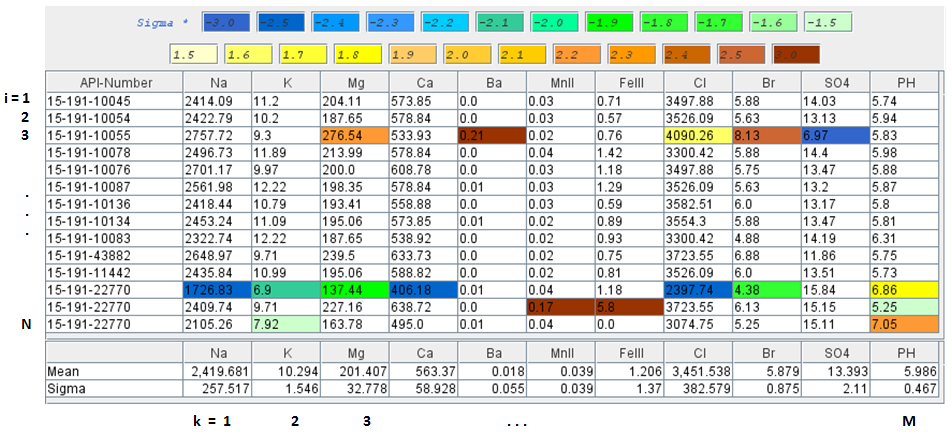
Mean X̄k is the average value of each column k

Sigma (Standard Deviation) σk is a measure of how spread out
the kth data column is
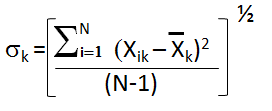
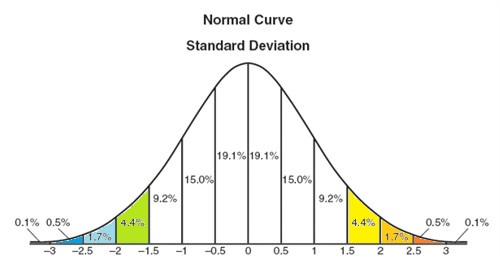
The brine data cells are colored to illustrate how spread out the data is with respect to the standard deviation, i.e. green and blues from -1.5σ to less than -3σ and yellows and oranges from 1.5σ to above 3σ. Normalize each column to its standard deviation. Unless the data is normalized, a variable with a large variance will dominate, xik = Xik/σk , where i is the row, k is column.

The web app performs all the processing in the background. The process begins by
constructing the Covariance matrix for the brine data set. Covariance [cov(x,y)]
matrix is a measure how much each data column vary from the mean with respect to
each other.

where x is the mean of brine data column k divided by σk where xi is the individual brine data divided by σk, subscript i represents the well, subscript k represents the brine data column, e.g. cov (Na, Ca) is sum over the Na (Sodium cation) and Ca (Calcium cation) columns of the normalized data set.
To compute the Eigenvectors and Eigenvalues this web app uses JAMA a Java Matrix Package (http://math.nist.gov/javanumerics/jama/ ).
"JAMA is a basic linear algebra package for Java. It provides user-level classes for constructing and manipulating real, dense matrices. It is meant to provide sufficient functionality for routine problems, packaged in a way that is natural and understandable to non-experts. It is intended to serve as the standard matrix class for Java."
JAMA Java Functions:
C represents the symbol for the Covariance Matrix
The eigenvalues & eigenvectors JAMA functions are listed as follows
Ev = C.eig(), where the eig() function computes the eigenvalues & eigenvectors
of the covariance matrix C.
Eigenvalues = Ev.getRealEigenvalues()
Eigenvectors = Ev.getV().
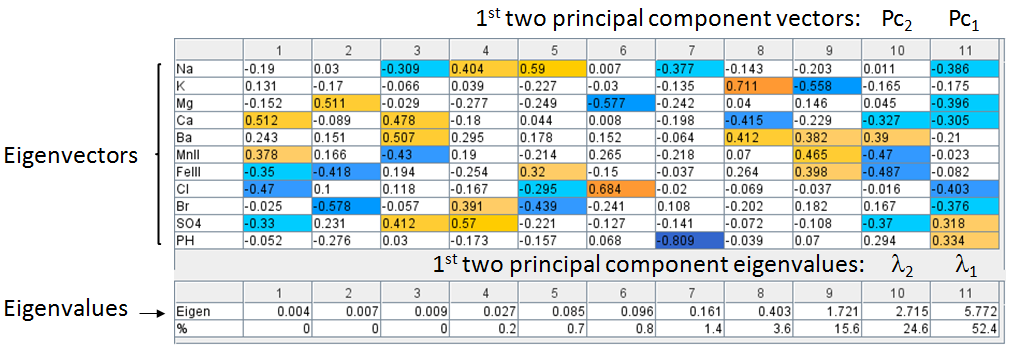
The principal components is less than or equal to the number of original variables. The first principal component Pc1 has the largest possible variance i.e., it accounts for as much of the variability in the data as possible and the next principal component Pc2 has the highest variance possible under the constraint that it is orthogonal to the preceding component. The principal components are orthogonal because they are the eigenvectors of the covariance matrix, which is symmetric.
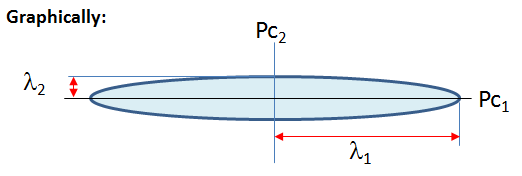
Construct a Feature Vector from the 1st two principal components, e.g. columns 10 and ll.
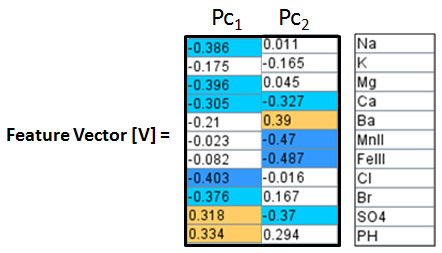
Then construct an Adjusted Data Matrix from the Brine Data Matrix by subtracting the mean of each column and then dividing the standard deviation of the each column.
Adjusted Data Matrix [Am] = [ (Xik - X̄k) / σk ]
where X̄k is the mean of the brine data column k,
Xik is the individual brine data; i = well, k = brine data column,
σk is the standard deviation of the brine data column.
Compute the Principal Components Scores [PC Scores] matrix as the Adjusted Data matrix times the Feature Vector.
[PC Scores] = [Am] X [V]
The Principal Components Scores [PC Scores] matrix converts the multi dimensional matrix into a 2 dimensional matrix.
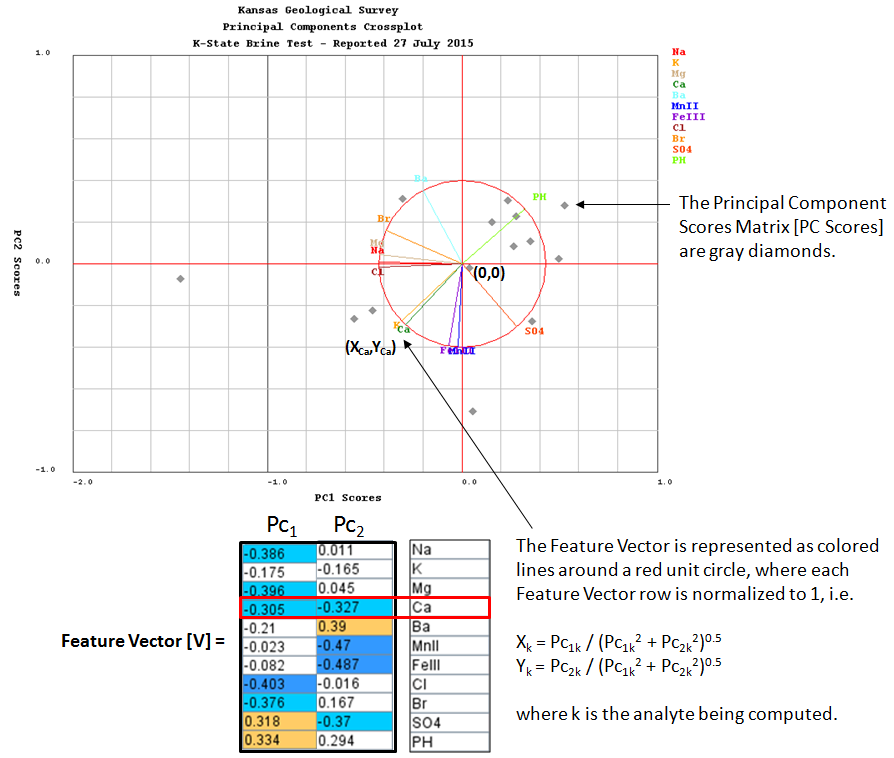
|
References |
Author: John R. Victorine jvictor@kgs.ku.edu
The URL for this page is http://www.kgs.ku.edu/PRS/Ozark/Software/PC/index.html

